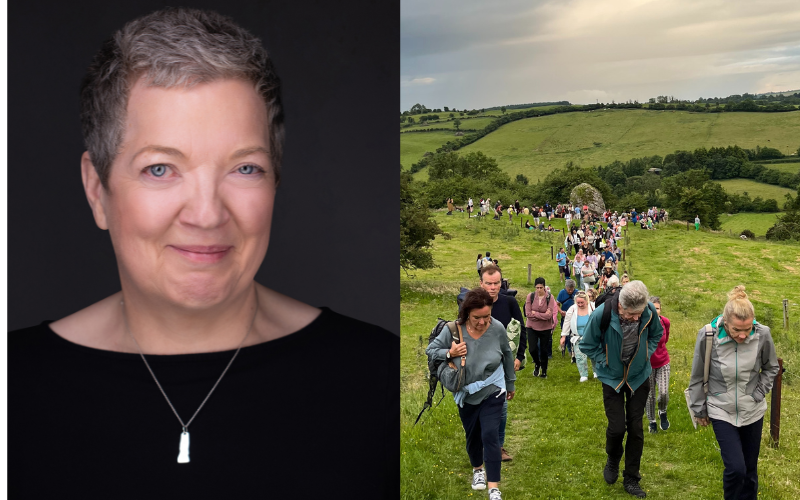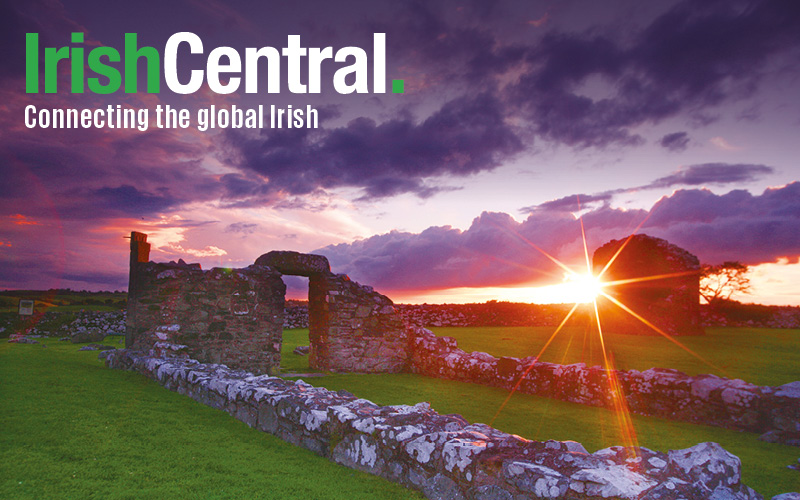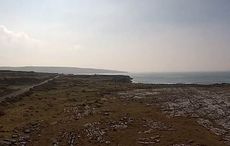In 2008, the great American writer John Updike released a novel called "Terrorist." It was about Ahmad, a high school senior from New Jersey whose Egyptian father had drifted away. So, Ahmad spends a lot of time with an Imam at a mosque, striving to be a devout Muslim. But things are a bit more complicated. The boy's mother, Theresa Malloy, is, as Updike writes, "red-haired...of Irish ancestry." Another character, a schoolyard bully, throws insults at Ahmad, saying his mother is nothing but "a freckle-faced Mick." Updike goes on at some length about Theresa's "Irish white" skin and, yes, even her "Irish teeth." Forget, for a moment, the insults in such descriptions. Let's look at the big picture, especially as a certain president with complicated roots (among them sturdy Irish roots) has been sworn into the White House. Is Ahmad an Irish American? Hold that thought for a moment while I tell you about another high school student, a real life one named Naina Syed, a 14-year-old born in Pakistan. Naina recently told The New York Times about another book, entitled "The Taqwacores." Naina said that book changed her life. The headline of the story was "Young Muslims Build a Subculture on an Underground Book." The author's name is Michael Muhammad Knight. "Mr. Muhammad Knight was born an Irish Catholic in upstate New York and converted to Islam as a teenager. He studied at a mosque in Pakistan but became disillusioned with Islam after learning about the sectarian battles after the death of Muhammad," the Times wrote. The election and inauguration of Barack Obama was the latest opportunity Americans had to discuss the blending of Irish and African-American roots. But it is now the 21st century, and as we talk about how America is changing, and how America is dealing with the Muslim nations of the world, it is also clearly time to talk about the Irish and Islam. Let's call them (to use John Updike's rather stereotypical words) the "freckle-faced" Muslims of the 21st Century. There have, of course, been some high profile Irish Muslim converts. Perhaps the most famous is Fidelma O'Leary, a professor who travels the country lecturing about religion as well as her personal conversion. You also may be thinking of an Irish-born New York subway worker who became embroiled in a lawsuit involving his turban, but he was actually a Sikh. The Irish-Muslim issue, first and foremost, shows us that while religion remains a profoundly important and deeply personal issue, it is also (to put it bluntly) often a simple matter of choice and fate. People from Northern Ireland to Darfur have been willing to kill themselves in the name of God, in part because religion is tied to their relationship with God, as well as their ancestors, ties made strong by centuries. Religious zeal is so powerful because it feels divinely inspired. Your religion has been chosen for you by God. But what happens when people just start choosing their religion? Or religions? Look no further than our new president. Obama is walking proof that religion - your ancestral roots, in general - can be almost anything. Of course, this is a sensitive topic. There are those who spread rumors that Obama was a Muslim, hoping that this would scare voters. But, of course, Obama could very well have made the choice to be a Muslim. His father did. But only after Barack Obama Senior converted from Roman Catholicism. (By the way, the new president's middle name gets a lot of attention, but it's less noted that his first name comes from the Prophet Muhammad's favorite horse.) Either way, if the Irish mom in John Updike's book can have a devout Muslim son, if an Irish kid from Buffalo can write what is being called a "Catcher in the Rye" for Muslim Americans, if a Famine immigrant can eventually produce a Protestant president named Barack Hussein Obama, then it's pretty clear our sense of what it means to be Irish in the 21st century is going to make some people confused, even angry. Maybe that's a good thing. Contact Sidewalks at [email protected].




Comments